Thomas E. Ricks's Blog, page 181
May 29, 2012
Nothing about NATO here. How come?
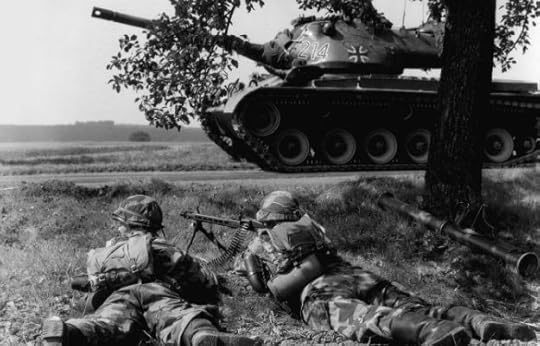
I wrote nothing about the
recent NATO summit -- and not a single reader asked how come. That's
interesting because clearly the readers of this blog are interested in national
security issues.
I suspect that you, like me, just found the whole thing
boring. In fact, the main thing that interests me about Europe right now is its
economic crisis, not its security pretenses.
That said, I still believe what one sage once told me about
the purpose of NATO: "They keep the Russians out, the Americans in, and the
Germans down."
May 25, 2012
A Memorial Day thought: Maybe Pittard really does speak for us on suicides
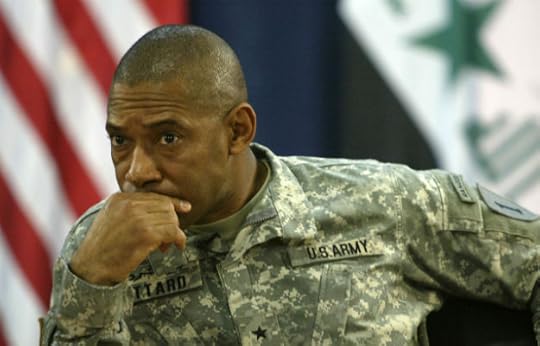
By Jim Gourley
Best Defense no. 1
commenter
There is profound irony in the recent unfortunate
remarks made by Major General Dana Pittard the week before Memorial
Day. After attending the funeral service of a
soldier who'd committed suicide, the 1st Armored Division commander issued a
post on his official blog describing suicide as "an absolutely selfish
act."
"I am personally fed up with soldiers who are choosing to take their own
lives so that others can clean up their mess." He wrote. "Be an adult, act like an adult, and
deal with your real-life problems like the rest of us."
Pittard later retracted
his statements with "deepest
sincerity and respect," but he did not explicitly apologize. Just as notable was the absence of any
remarks from senior army leadership disavowing that Pittard's comments in any
way represent official army policy or views. Perhaps it would have mitigated the damage done by the ill-conceived
remarks, but the fact that no one said anything -- especially so close to a time
when we are about to remember those who have made the ultimate sacrifice in
service to their country -- may in fact be the bitter medicine we need to
take.
The truth is that Pittard's comments actually do serve as a
representation of the military's perception and approach to suicide in an
indirect yet disturbing way. The remarks
themselves were odious, but the loudest statement was the muted response from
army leadership. It is incredible that,
after a decade of war in Afghanistan, it was unclear to Pittard that such views
are not only unacceptable but wholly incorrect. It is equally shocking that no other senior leader felt compelled to
issue an immediate and damning response. It is not the case that Pittard's remarks are generally accepted as
correct (though more than one senior leader likely agrees with them), but it is
painfully evident that senior leaders have not determined what the correct
perspective is. They certainly have not
articulated it.
On the whole, Americans take off work for Memorial Day but they don't
actually take the time to remember. We
visit cemeteries and monuments to talk about the price of freedom, but we don't
reflect on the cost of war. We hail
those who made the ultimate sacrifice, but we don't consider how to account for
the sacrifices of those who died by their own hand. It is a bureaucratic bridge too far for the
army to ever establish a connection between combat events and an active duty
service member's suicide in garrison, let alone the suicide of a veteran after
separation. Yet countless are the
mothers, fathers, spouses, and children who will say that these men and women
"died over there" and "never really came home." That leaves us with the prospect that this
weekend we'll remember fewer than ten
percent of the service members who made the ultimate sacrifice over the
last ten years. It's not something we
like to talk about. So we don't.
This irony will be the enduring, tragic legacy of our wars in
Afghanistan and Iraq. I have written
about the issue at length on this blog.
The Department of Defense, VA, and multiple independent researchers have
made an exhaustive effort out of collecting data on combat trauma and
suicide. Yet for all the statistical
certainty with which we can speak about suicide among veterans and service
members, we are paralyzed when it comes to determining how we feel about it as
a country. The people we've lost to
suicide knew how they felt when they joined the military. It's reasonable to assume most of them did
not feel selfish. They definitely knew
how they felt the moment they took their own lives.
The Pittard episode is an allegory for America's response to service
member and veteran suicide. I neither
believe him nor the majority of American citizens to be malevolent. Nor do I believe that the thoughts he
expressed were motivated by cruelty. But
cruelty does not require intent, and it is often the consequence of a
neglectful or inconsiderate mindset.
Having committed it accidentally, we view the cruelty as something best
forgotten quickly. Pittard did exactly
that, trying to move on without dwelling further on the past. He immediately followed his retraction with
comments about this weekend's upcoming Memorial Day events at Fort Bliss,
seemingly oblivious to any connection between the two. Like anyone else caught in a public gaffe,
Pittard would like to carry on as if nothing happened.
In this way, he is the avatar for our collective discomfort with our
treatment (or lack thereof) of those living with combat trauma. With the exception of a few landmark
occasions like Memorial Day and September 11, this has been the
standard practice of Americans for the last ten years. How ironic then that we should refer to
combat trauma as an "invisible wound" and over 6,000 veteran suicides
each year as the "unseen tragedy."
In that way, a nation's day of remembrance would take on an unbearable
melancholy were its citizens brought to remember that the preponderance of its
fallen service members died on home soil. By living in denial we protect the greater population from bearing that
burden of remembrance. Therein lies the final irony of Pittard's remarks. Any rebuke of his momentary lapse in judgment
would necessarily be an indictment of our decade of willful negligence. Maybe the senior leadership was hesitant to
say that he does not speak for us because they know that he speaks from among
us. In that regard, our silence is bred
of shame.
Memorial Day: The heart of a Ranger

Read this short
comment from Michael Yon, dammit.
War Dog of the Week: Tam, the dog who would not leave his handler behind
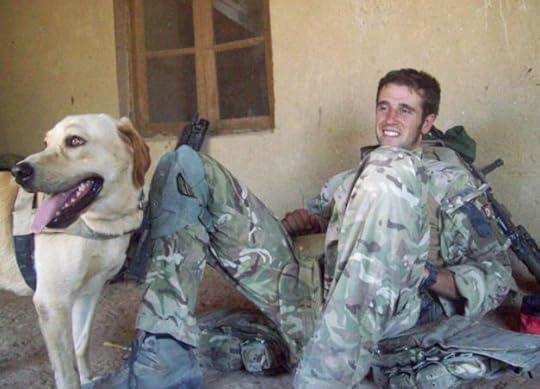
By Rebecca Frankel
Best Defense Chief Canine Correspondent
Lance Corporal James Wilkinson was a mere two meters away
when a roadside bomb
exploded, sending shrapnel spray into his hip and stomach, severing the
femoral artery in his leg. The blast launched Wilkinson off his feet, and though
he was able to take stock of the severity of his wounds, he blacked out before
he could call for help.
When he came to he found Tam, the yellow Labrador who'd been
his bomb-sniffing partner during their three months in Afghanistan, standing
over him. After the explosion Tam, who had not been injured in the attack, stuck
close by his handler through the billowing black smoke and barked "like mad,"
not only bringing Wilkinson back to consciousness, but also drawing their
fellow soldiers to his aid. They treated him quickly, applying a tourniquet to
his leg and getting him onto the U.S. Black Hawk helicopter that
brought him swiftly to Camp Bastion's military hospital.
The doctors who repaired the extensive damage done to his
hip and leg told Wilkinson, a dog handler with the 104 Military MWD Squadron of
the British Army, that if he'd arrived at the hospital "a minute later he would
be dead." His surgeries lasted an entire day.
Originally from Yorkshire, Wilkinson, 26, is still working
through his recovery. "It is a slow process," he told
reporters, "but I am getting there. I am
walking, which is the main thing. A lot of guys who get caught by IEDs
(improvised explosive devices) end up losing a leg or both."
Unfortunately, his career as a military
dog handler is over. Wilkinson suffered nerve damage in his leg
and still has shrapnel in his body. The Army has classified him as
"non-deployable." His wife Kerry has left the Army and hopes that her husband
will decide to join her in civilian life and return to his former job as a
gamekeeper. They are expecting their first child this summer. But Kerry, who
was also a handler with the 104, knew Tam and saw
the connection between her husband and his canine
partner. "They had a great bond. Jim loved that dog."
There is no questioning the role the dog played in saving
this soldier's life. Of Tam, Wilkinson says, "He was my world. He was a good
companion and I trusted him."
What would you ask Hank Crumpton?
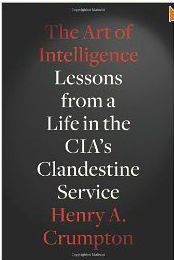
This is your big chance. I expect to do an e-mail interview
in the next few days with former CIA clandestine operator and counter-terror
chief Henry
Crumpton. It occurred to me that many of you, with all your varied
experiences, probably would have better questions than me.
So send your questions along, and I will add them to my
pile, and select the best 10.
May 24, 2012
Obama and American exceptionalism at AF Academy: Will we bear any burden?

The
president was selling red meat at the Air Force Academy graduation yesterday. I guess this is part of running toward the
center as the general election campaign begins.
Yesterday's
Blue Plate Special was American
exceptionalism, with all the trimmings. You can see how this Kennedy-esque
stuff might drive both the isolationist right and the pacifist left nuts. I
liked it better when he was channeling
Lincoln:
" You would think folks understand a basic truth
-- never bet against the United States of America. (Applause.) And
one of the reasons is that the United States has been, and will always be, the
one indispensable nation in world affairs. It's one of the many examples
of why America is exceptional. It's why I firmly believe that if we rise
to this moment in history, if we meet our responsibilities, then -- just like
the 20th century -- the 21st century will be another great American century. That's the future I see. That's the future you can
build. (Applause.)
. . . I see an
American century because no other nation seeks the role that we play in global
affairs, and no other nation can play the role that we play in global
affairs. That includes shaping the global institutions of the 20th
century to meet the challenges of the 21st. As president, I've made it
clear the United States does not fear the rise of peaceful, responsible
emerging powers -- we welcome them. Because when more nations step up and
contribute to peace and security, that doesn't undermine American power, it
enhances it.
. . . And finally, I see an American century
because of the character of our country -- the spirit that has always made us
exceptional. That simple yet revolutionary idea -- there at our founding
and in our hearts ever since -- that we have it in our power to make the world
anew, to make the future what we will. It is that fundamental faith --
that American optimism -- which says no challenge is too great, no mission is
too hard. It's the spirit that guides your class: "Never
falter, never fail." (Applause.)
That is the essence
of America, and there's nothing else like it anywhere in the world.
A reading list: The best books on PTSD
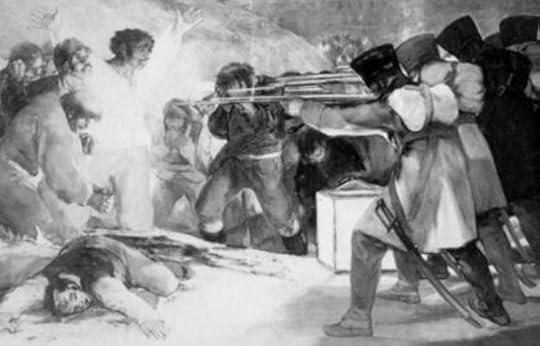
By Lt. Col. Robert Bateman, USA
Best Defense department of strategical
and historical affairs
Now, obviously
(given my own book which dealt heavily with the topic of veterans who falsely
claim PTSD), I agree that there is room in the system for correction. Sometimes
it is too easy to fool the VA, for example.
But just as with
the machining tolerances within the extremely reliable AK-47, you need some
slack in the system to ensure that everyone who should be taken care of
actually is taken care of. The AK never jams because it is machined to a looser
standard than our own Western, weapons. A little extra gas escapes, and because
of this the weapon does not have the amazing accuracy of our weapons. But also
because of this slack built into the system, you know that when you pick up an
AK out of the dirt, that it WILL fire every single bullet in the magazine. An
American weapon, picked up out of the dirt or dust or swamp, not so much. The
American weapon must be clean, and well cared for, because there is no
tolerance built into the system, which means some rounds won't fire, and that
can be a bad thing.
Much the same
might apply to the definitions of PTSD and how they are applied. Do we want the
"perfect" system, which sometimes causes catastrophic jams, or do we want a
system that has some leaks and inefficiencies, but works for 100 percent of the rounds
you put through it?
In partial answer to a colleague's query, let me offer a short annotated
bibliography.
Eric Dean, Shook
Over Hell, Post-Traumatic Stress, Vietnam, and the Civil War (Harvard
University Press, 1997): This is a pretty decent book, although the author is
not entirely conversant in the then-latest medical scholarship. Also, frankly,
he could have done entirely without the opening and closing artificiality of
examining PTSD from Vietnam. It was enough that he uncovered, and demonstrated
the broad and then-well-known phenomena of "nostalgia." Essentially,
from all contemporary descriptions, this was PTSD as it was diagnosed in the
post-Civil War era in the United States. Given this evidence of widespread PTSD
(including cases ending in suicide) in the Civil War generation, were they just
softer than the Mexican-American War and War of 1812 generations?
Peter Barham, Forgotten Lunatics of the Great War (Yale
University Press, 2004): The focus here is on those slackers and weak-willed
types, the Edwardian Tommies who fought in the trenches of WWI for the
British. Barham's work is dense, but readable, and discusses the
evolution of attitudes towards these "slackers." (Or, as was the case
with much of the military -- then and perhaps now -- who want to ignore the
issue, the lack of evolution.) The work focuses upon asylums, mostly after the
war.
Peter Leese, Shell Shock, Traumatic Neurosis and the British Soldiers
of the First World War (Palgrave MacMillan, 2002): Covers much of the
same ground, but more in depth on how the topic was dealt with during WWI, with
only about 54 pages devoted to post-WWI period. Still, it's a shorter and
somewhat more digestible book, so if you wanted just one book on the topic as
it related to the British in WWI and after, I'd go with this one. Since Leese
(writing from his faculty position in Krakow, Poland) and Barham (writing,
then, in the UK) were writing at nearly the same time, their works overlap, but
not excessively so, and they do not reference each other.
Now, on the changing of attitudes towards all veterans and their malaise,
there has been some evolution. For a good multinational examination of the
history, I recommend a fairly dense academic anthology: David Gerber,
ed., Disabled Veterans in History (University of Michigan
Press, 2000). Fascinating, if constrained by the nature of an anthology, I'll
list just a few chapter titles and let you decide if you want the book.
"Heroes and Misfits: The Troubled Social Reintegration of Disabled
Veterans of World War II in The Best Years of Our Lives" by
the editor, Gerber. Geoffrey Hudson, "Disabled Veterans and the State in
Early Modern England." Isser Woloch, " 'A Sacred Debt': Veterans and
the State in Revolutionary and Napoleonic France." etc.
Now, on the
American side of the equation we have some pros and we have some cons. It is
also an area where my personal interaction puts me in the middle, and so my
analysis here must be balanced against my personal friendship with both,
opposing, authors.
First, and foremost, are Jonathan Shay's books, Achilles in
Vietnam and his later Odysseus in America. (Personal
disclaimer: I know, and like, Jonathan. He has been to my house, broken bread
with me and drunk my scotch. He is a good, honest, and truly dedicated health
care provider who really cares about his patients, and the modern American
fighting man.) Shay wrote, movingly, about the plight of men who had
experienced serious combat in Vietnam and who, as a result, had "difficulties."
He linked these stories with the stories of the Iliad and
the Odyssey, arguing that there is evidence, from his perspective
as a psychiatrist, to argue that both tales contain evidence that PTSD is a
part of the human condition. In other words, that it is a normal and
predictable byproduct of what happens when large numbers of humans are exposed
to extremes of violence. In his second book Shay was arguing for better
psychological PRE-battle training, not just for compassionate reasons (his motivation),
but for combat effectiveness (which he knew would appeal to the military). Shay
is not a trained classical historian, or a historian at all. But his books
contribute greatly to the literature and in the latter case provide at least
one decent roadmap on how we might reduce PTSD before it occurs, instead of
trying to treat it afterwards. How can that be wrong? Unfortunately, and
perhaps sadly, it appears clear that in his first book he was taken for a ride
by at least a couple of his patients at the Veterans Administration clinic
where he worked who told him tales that he was not qualified to question or
disbelieve. At least that was the contention of the other author/friend of
mine, whom I also believe.
The other, critical work on the topic of modern, or at least post-Vietnam
PTSD, is also by a man I call friend. B.G. Burkett, a former stockbroker from
Texas, was an entirely normal Vietnam vet who, by his own admission, spent an
entirely uneventful year in Vietnam doing base work. He was annoyed, then moved
to anger, by the phenomena of fake veterans who were stealing the headlines in
the 80s and 90s for their misbehavior. So, unlike many others, B.G. started
doing the hard research work to expose these fakes, expose the problems of the
media (who are supposed to be skeptical from the outset) falling for obvious
fakes, and the VA and psychiatry's complicity in expanding and enabling fakes
to claim VA benefits for combat they never saw. The end result of his 80-90 percent
useful efforts (my highest rating) was the standout self-published book, Stolen
Valor. In which, for example, B.G. convincingly exposes the fakes that
Jonathan fell for, as well as a whole host of fakes who fooled journalists and
the VA system.
It was his work
that inspired my own research techniques and methods when uncovering the
personality at the core of the No Gun Ri story, Ed Daily.
Finally, two great works which, together, give you the history of both the
psychology and the psychiatry, as well as the history, of the developing
treatments for combat veterans dealing with their memories of war.
Edgar Jones and Simon Wessely, Shell Shock to PTSD, Military Psychiatry
from 1900 to the Gulf War (Psychology Press, East Sussex, 2005)
actually dips back a little further, with accounts going back to the Crimean,
but mostly starting with the Boer War. It is a solid, if stolid, multi-national
examination, albeit with a 75 percent tilt towards diagnoses and treatment as it
related to British/Commonwealth forces. It can be a bit of heavy-going, and if
you've already read everything else on the list to this point, you could skip
this one. Alternately, just read this one and skip the others. But if you do
so, understanding will be a little thin. At least that would be the case
without the last, and best, of the lot.
Ben Shephard, A War of Nerves, Soldiers and Psychiatrists in the
Twentieth Century, (Harvard, 2001): Without a doubt one of the most
fascinating works I've read. Shephard writes in an easy, engaging, and yet
detailed "voice" on the topic of the changes, over time, to the
diagnoses applied to those "mentally softer" Tommies and Doughboys of
WWI, the weak-willed and selfish Tommies and GI's of WWII, and the Grunts of
Vietnam. (Again, to be absolutely clear, I am using these terms sarcastically,
and if you are historically astute, a tad ironically. Shephard never said such
things.) Fairly equally balanced between the U.S. and the U.K., what is really
interesting in this book is that Shephard delves into the history of the
psychiatrists themselves. How did the "DSM" (Diagnostic and
Statistical Manual of Mental Disorders), first published in 1952, updated as
"DSM II" in 1968, and so on, come to be? What were the "inside
baseball" things going on within the field of psychiatry, as well as the
political implications of the actions and motivations of the most prominent
psychiatrists in, say, 1967, and how did these affect the definitions and
descriptions of the "disorder" (originally known as
"Post-Vietnam Stress Disorder" but then later, for political and
other reasons, renamed PTSD and now, again, changed to PTS or PTSS)? All
fascinating stuff, and probably your one-stop shop to learn about the answers
to all of your questions.
Hope this is
useful.
LTC Robert Bateman, has written books and
articles on military history and military theory, as well
as immeasurable amounts of snarky commentary in every outlet from Armor magazine to Parameters, from the Marine Corps Gazette to USNI Proceedings. He was once an honest infantryman, but is
now a strategist, serving in England after a recent one-year vacation
in Afghanistan.
Ignatius: To figure out where Syria is going, watch the big Sunni tribes
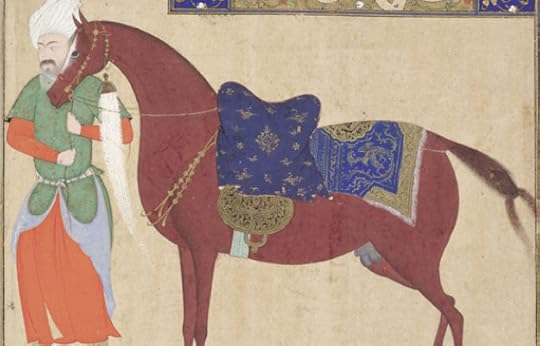
Who ever thought the 21st century would see us monitoring
the tribal politics of the Levant? David
Ignatius writes,
"Two big Sunni tribes,
the Shammar and the
Dulaim, stretch from northern Saudi Arabia through western Iraq and Jordan and
up into Syria. Some observers say these tribes have sworn a blood oath against
Assad. If so, a decisive phase of the Syrian war may have begun."
May 23, 2012
Kurds, oil, and Exxon
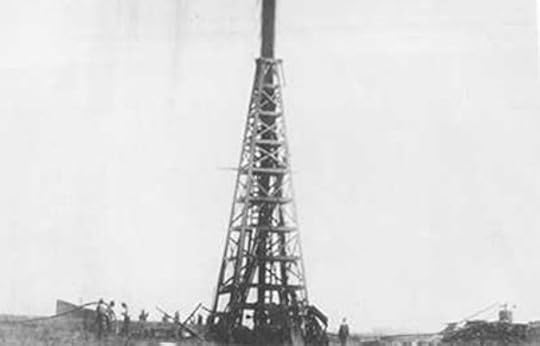
Joel Wing offers up a good
overview of Kurdish oil deals, along with some interesting maps. (I hadn't
realized, for example, that one of the blocks Exxon bought is right on the
outskirts of Mosul -- that's playing with fire.) The bottom line, it seems to
me, is that the Kurds have found a way to benefit from the dithering and
stalemates of Baghdad: They continue to talk to the central government while
acting as if they were an independent entity.
It all makes me want to sit down sometime this summer and
read Steve Coll's new
book on Exxon.
Today's odd fact: The American Revolution living into the 20th century

"The last surviving
dependent of the Revolutionary War continued to receive benefits until 1911,"
according to
a book on the Bonus March I've been reading. In other words, the last
dependent of a Revolutionary War veteran died just over 100 years ago.
Thomas E. Ricks's Blog
- Thomas E. Ricks's profile
- 436 followers



